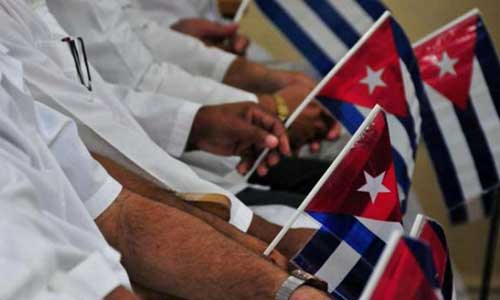
A total of 25 health specialists from Las Tunas, belonging to the Henry Reeve brigade, traveled to the capital to join the Cuban medical brigade that could go to Argentina in April to combat the spread of the new SARS-CoV-2 coronavirus, causing the Covid-19 disease and became a global pandemic since March 11.
Las Tunas.- A report by the local TunasVisión channel assured that 21 doctors from various specialties, in addition to four nurses, make up the group that will receive special training. “They have the preparation of the work that they do in their health area and they are going to receive another training in the Central Medical Collaboration Unit, in Havana, fundamentally to avoid getting contagion and then achieve a satisfactory result of their role abroad, ” affirmed Dr. Manuel Sosa, provincial director of Medical Collaboration.
"We feel very committed to these peoples and fundamentally to our country. It is important to go to save and help the world. If we save the world, we are saving ourselves,” said María Ricaño, one of the nurses.
Earlier this week, the Governor of the province of Buenos Aires, Axel Kicillof, confirmed the offer of Cuba to send doctors to provide services in that Buenos Aires territory, although he did not give assurance that the trip of the Antillean doctors would finally take place.
The Henry Reeve Brigade has brought the solidarity of the Cuban people to 59 countries on all continents and is currently cooperating with some 40 nations, amid the worldwide emergency caused by Covid-19.
"We are the image of our country where we stand. How we act, how we work, how we treat other people ... this is how we are going to demonstrate that our country is facing this new epidemic, which has the world in tension, "said Dr. Ronald Rodríguez, a specialist in Comprehensive General Medicine of the detachment.
According to data published this Friday, in Argentina, there are 589 confirmed cases and 12 deaths, with the highest incidence in the capital, Buenos Aires, and in provinces such as Chaco and Córdoba.